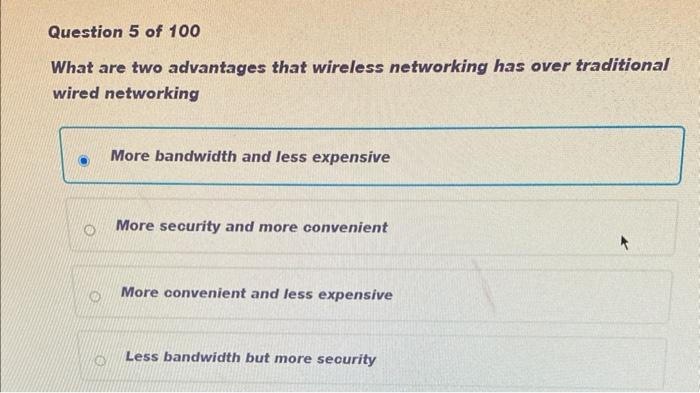
What are Two Advantages of Wireless Networks
Wireless networks have become increasingly popular in recent years due to their numerous advantages and benefits. In this article, we will explore two key advantages of wireless networks that contribute to their widespread adoption and usage.
Advantage 1: Mobility and Collaboration
One of the primary advantages of wireless networks is the freedom of mobility and the ability to collaborate effectively. With a wireless network, users can stay connected while moving throughout their work site. This means that employees can access important information, communicate with colleagues, and work efficiently from different areas, without being tied down by physical cables or restricted to a specific location.
Additionally, wireless networks enable collaboration between team members, facilitating seamless communication and information sharing. This is particularly valuable in modern workplaces where collaboration and teamwork are essential for productivity and innovation.

Credit: www.aplustopper.com
Advantage 2: Accessibility
Another significant advantage of wireless networks is accessibility. With a wireless network, users can connect to the internet and access resources from any location within the network’s coverage area. This accessibility promotes flexibility and convenience, as individuals can use their devices to work, communicate, and access information from various areas such as meeting rooms, common areas, or even outdoors.
Moreover, wireless networks offer the advantage of guest access, allowing visitors or clients to connect to the network without the need for complex setup processes or physical connections. This facilitates smoother interactions with external stakeholders and enhances the overall user experience for guests.

Credit: www.spiceworks.com
Frequently Asked Questions On What Are Two Advantages Of Wireless Networks
What Are 3 Advantages Of Wireless Network?
Wireless networks offer three main advantages: 1. Mobility: With wireless connectivity, you can stay connected while moving throughout your work site, allowing for increased collaboration and productivity. 2. Accessibility: Wireless networks provide easy access to the internet and resources, allowing users to connect from anywhere within the network coverage area.
3. Flexibility: Wireless infrastructure is adaptable and scalable, making it easier to expand and modify your network as needed. These advantages make wireless networks cost-effective, efficient, and convenient for businesses and individuals.
What Are 2 Disadvantages Of Wireless Network?
Two disadvantages of wireless networks are less secure communication through open spaces and susceptibility to interference and jamming.
What Are Two Advantages Of Wi-fi?
Wi-Fi offers increased mobility and convenience. It also allows for easy accessibility and expandability.
What Is Wireless Advantage?
Wireless advantage offers mobility and flexibility, plus easy installation and accessibility. It provides increased collaboration, cost savings, and convenience.
Conclusion
In conclusion, wireless networks offer two key advantages: mobility and collaboration, as well as accessibility. These advantages contribute to increased efficiency, flexibility, and convenience in the workplace, allowing users to work seamlessly and access resources from any location within the network’s coverage area. As a result, wireless networks have become an essential component of modern business environments, enabling organizations to adapt to the demands of a mobile workforce and promote collaboration and productivity.
